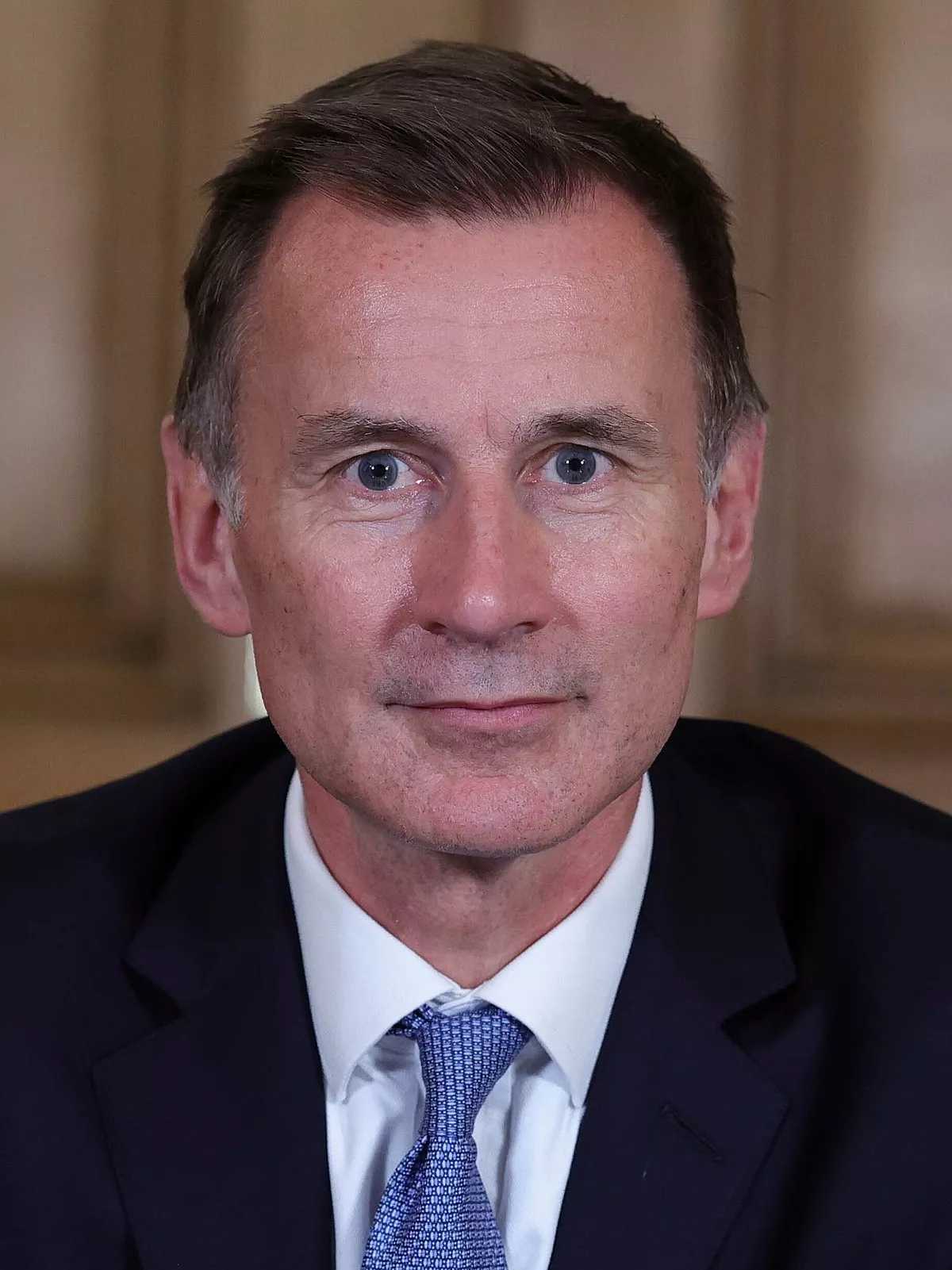 1.
1. Sir Jeremy Richard Streynsham Hunt was born on 1 November 1966 and is a British politician who served as Chancellor of the Exchequer from 2022 to 2024, Foreign Secretary from 2018 to 2019, Secretary of State for Health and Social Care from 2012 to 2018 and as Secretary of State for Culture, Olympics, Media and Sport from 2010 to 2012.